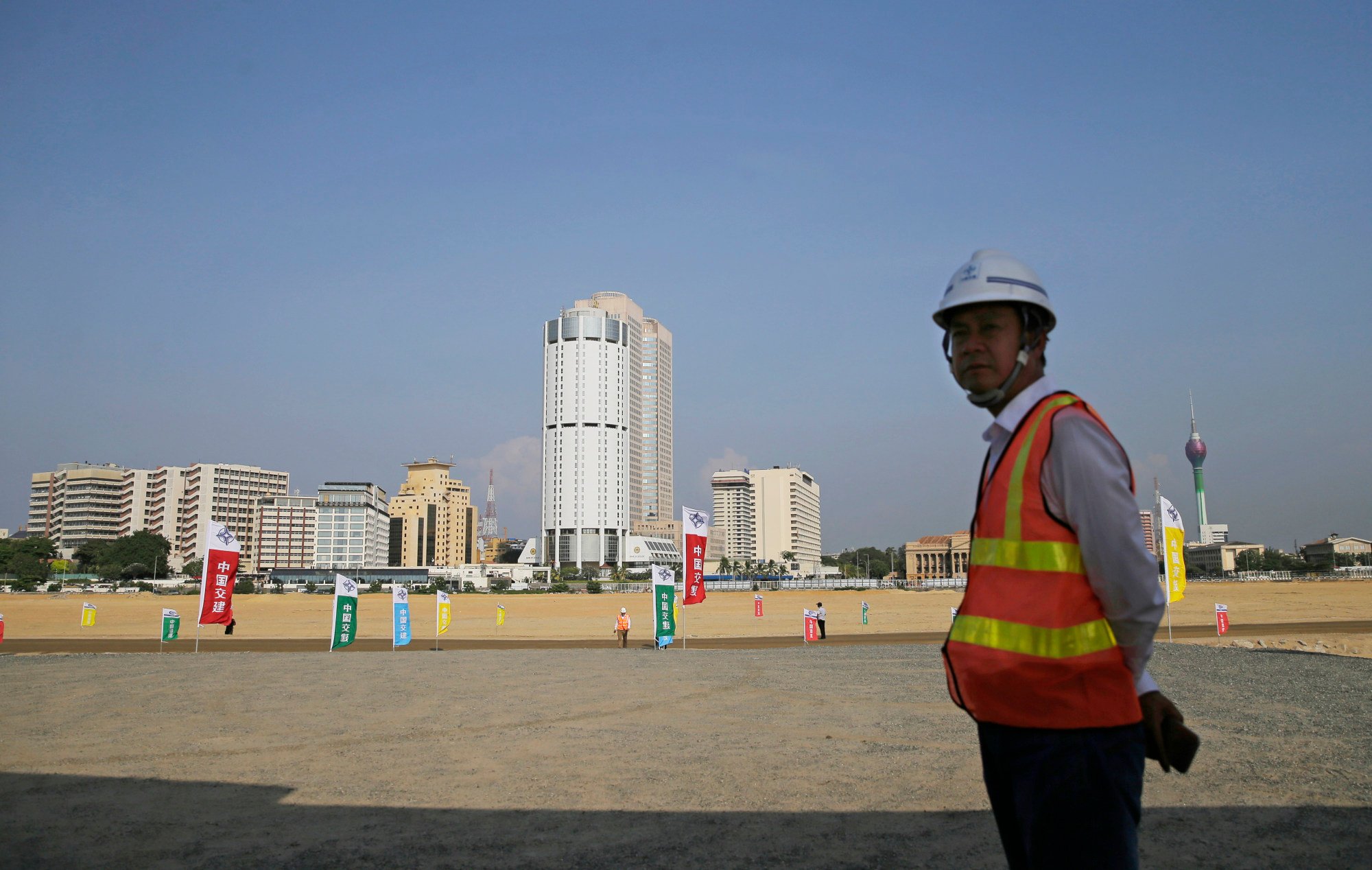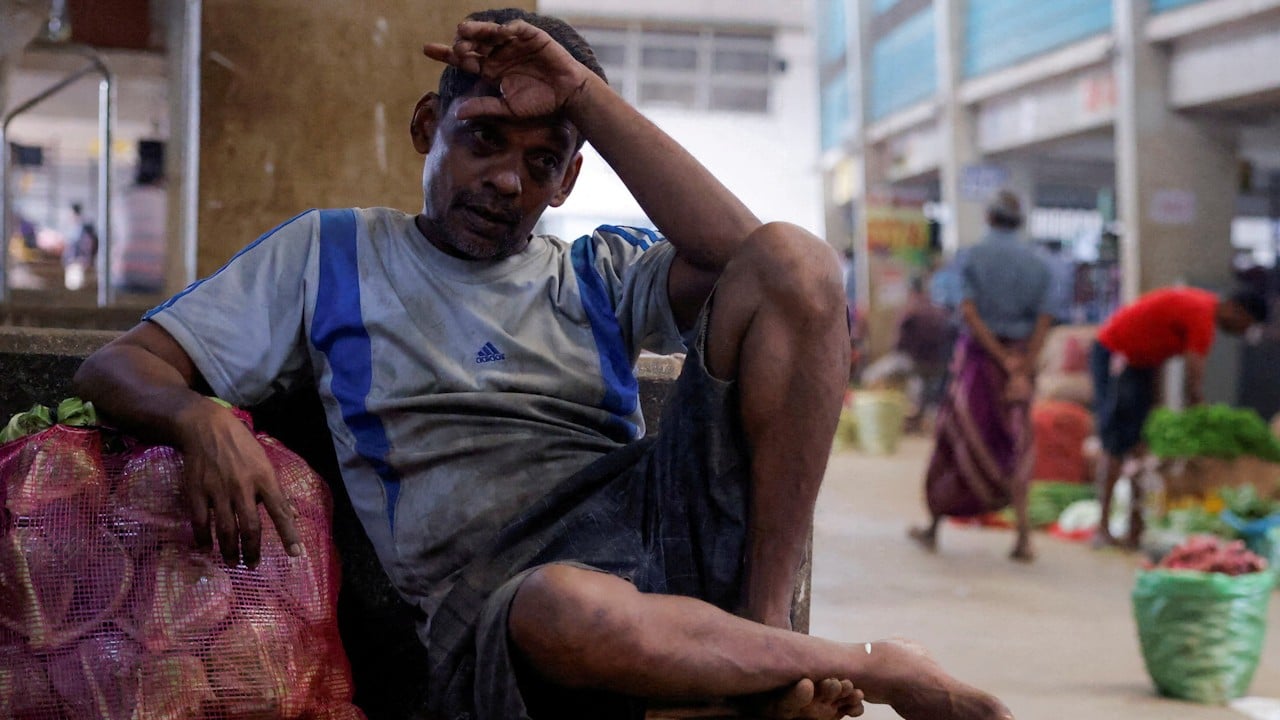China-backed ‘white elephant’ projects in Sri Lanka dent investor confidence amid calls for policy revamp
[ad_1]
The Sri Lankan government announced earlier this month a plan to award an oil refinery project near HIP to China-owned Sinopec, as part of efforts to boost shipments of oil products through the port.
Kasun Thilina Kariyawasam, a Sweden-based economist, said more needs to be done to boost the confidence of investors and businesses in these projects, especially for those from China.
“[Sri Lanka] should go for an all-weather cooperation agreement with China to ensure that regardless of its political instabilities, there will be support for Chinese investments,” he told This Week in Asia.
Such an agreement would assure investors that policies would remain in place even with a change of governments.
A free-trade deal between China and Sri Lanka would be crucial to enhance investments in the two ports and other mega projects, Kariyawasam said. As such, Colombo should prioritise and push for the signing of the agreement, he added.

Some economists have blamed high-interest Chinese loans linked to Beijing-backed projects for causing Sri Lanka to face a “Chinese debt trap” amid its economic crisis last year.
China was Sri Lanka’s largest lender, holding almost 20 per cent of the country’s public external debt as of the end of 2021.
Given its sizeable debt, Sri Lanka should tap equity funding rather than borrow further as a lifeline for its mega projects, said an economist familiar with Sri Lanka’s debt restructuring and who declined to be named.
‘They can cut us off’: analysts warn Sri Lanka’s India deals could backfire
‘They can cut us off’: analysts warn Sri Lanka’s India deals could backfire
“The focus should be on getting equity flows. If loans are needed, it should be loans given directly to the private sector in a public-private partnership,” the source said.
Another strategy that Sri Lanka could adopt is to leverage joint ventures to drive mega projects, according to analysts.
One such example is the HIP, which has been showing signs of progress in the past year. The port managed by the Chinese-Sri Lankan joint venture, the Hambantota International Port Group (HIPG), handled 80 per cent of bunkers in the Sri Lankan market in the first eight months of this year, a five-time surge compared with last year’s total. It also reported an increase in the transshipment of vehicles in recent months.
The HIPG is a good example of joint ventures working better than the government overseeing this type of mega projects, says Umesh Moramudali, an economics lecturer from the University of Colombo.
Moramudali noted that port operator China Merchants Port (CMPort) had been trying to entice other Chinese investors to be involved in projects in Sri Lanka. “There’s potential there and I think that it [Chinese JV investment] will expand with time,” said Moramudali, who is also a co-author of a paper on Chinese lending to Sri Lanka.
France seeks Sri Lanka ties in aim to be ‘alternative’ Indo-Pacific power
France seeks Sri Lanka ties in aim to be ‘alternative’ Indo-Pacific power
While CMPort-led businesses in Sri Lanka may not be very profitable right now, their involvement could still ease short-term financial pressure faced by the local port authorities, Moramudali added.
The joint-venture model could also boost the fortunes of MRIA, according to Moramudali. Once dubbed as “the world’s loneliest airport”, MRIA handled only 216 international aircraft and 11,577 passengers last year.
One key challenge for potential investors in Sri Lanka has been the lack of coordination and harmonisation of policies for mega projects.
An example is HIP where investors are seeking clarity on the policies related to the port’s industrial focus, Kariyawasam said. There is a need to clearly highlight the investment incentives for HIP as this would in turn facilitate bank lending to businesses there and boost the port’s utilisation rate.
While the PCC has drawn criticisms from the IMF for its special economic zone (SEZ) with tax holidays, such financial incentives to lure investors are necessary to compete with SEZs in Dubai and India, Kariyawasam said.
Given Sri Lanka’s focus on growing its industries, PCC can become a base to support industrialisation and implement pioneering policies, he added.
Additional reporting by agencies
[ad_2]
Source link


